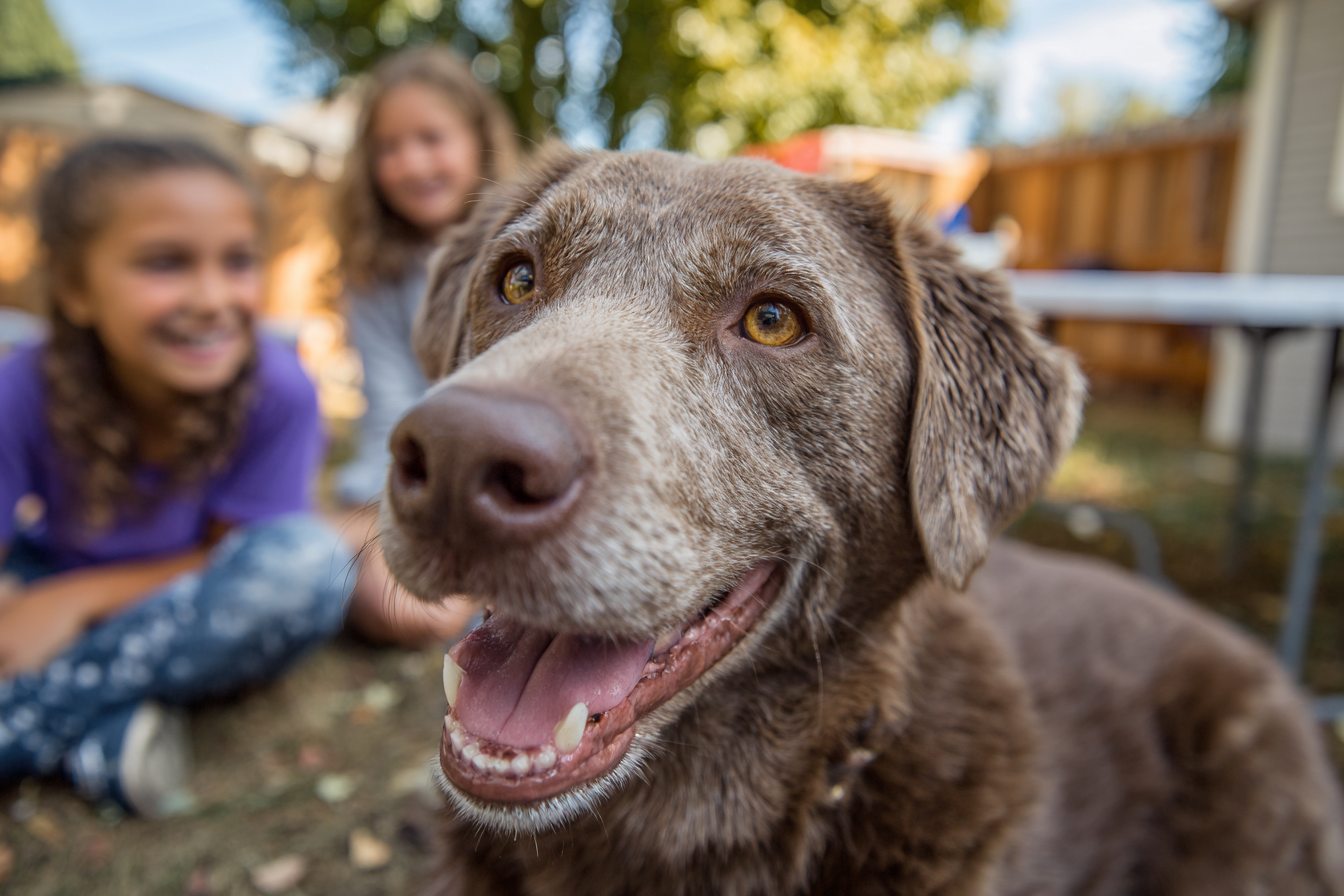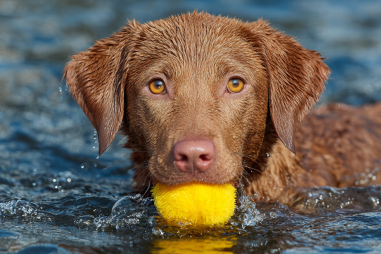The Chesapeake Bay Retriever is a beloved breed known for its distinctive coat, intelligence, and versatility as a working dog. But beyond their physical attributes, understanding Chesapeake Bay Retriever temperament and personality is crucial for anyone considering bringing one into their home. This breed’s unique combination of loyalty, energy, and intelligence makes them both rewarding companions and dedicated family members. Let’s dive into what makes the Chesapeake Bay Retriever tick and how their temperament can fit into various lifestyles and family dynamics.
Overview of General Temperament
Chesapeake Bay Retrievers, often affectionately called “Chessies,” are celebrated for their balanced and stable temperament. These dogs are known to be intelligent, alert, and highly trainable. They possess a natural protective instinct but are not typically aggressive without cause. Instead, they show a calm confidence and are often described as determined and hardworking.
The breed’s heritage as a waterfowl retriever is reflected in their tenacity and eagerness to please their owners. They are highly active and require regular exercise and mental challenges to stay happy and healthy. Chessies thrive on purpose, whether it’s retrieving, obedience training, or agility activities, and this strong work ethic influences their overall personality.
Interaction with Family Members
When it comes to family dynamics, Chesapeake Bay Retrievers are devoted and affectionate. They develop close bonds with their human families and often become a reliable and loving presence in the home. Due to their protective nature, they are naturally alert, making them excellent watchdogs, yet they are not overly aggressive or territorial.
Chesapeke Bay Retrievers generally get along well with children, showing patience and a gentle demeanor when properly socialized from a young age. Their high energy levels mean they enjoy playtime and interactive activities, making them great companions for active kids. However, adult supervision is advised initially to ensure respectful interactions because Chessies’ strong build and enthusiasm might unintentionally overwhelm very young children.
Behavior with Other Pets
Chessies tend to be sociable with other pets, especially if they are raised together or properly introduced early on. Their retrieving instincts might lead them to want to herd or chase smaller animals initially, so training plays a vital role in curbing any undesirable behavior. While they can coexist peacefully with cats or other dogs, consistent socialization and supervision remain important.
Because of their strong prey drive, caution should be exercised if small pets such as rabbits or rodents are part of the household. Proper training and controlled introductions can help minimize risks and encourage positive interactions. Overall, Chesapeake Bay Retrievers can become part of a multi-pet family with the right approach to socialization and respect for their natural instincts.
Traits That Affect Training and Socialization
The intelligence and eagerness to learn exhibited by Chesapeake Bay Retrievers make them highly trainable, but they also have an independent streak that can challenge some owners. Early socialization and consistent, positive reinforcement training methods are essential to harness their potential effectively.
Chessies respond exceptionally well to training that incorporates mental stimulation and physical activity. They enjoy problem-solving games, obedience tasks, and agility courses. Boredom and lack of stimulation can lead to undesirable behaviors like chewing, digging, or excessive barking.
Because they are sensitive dogs, harsh training techniques tend to be counterproductive. Clear communication, patience, and rewards such as treats or playtime motivate them best. Socializing them early with various people, places, and situations helps curb any shyness or distrust that could develop around strangers or unfamiliar environments.
Suitability for Different Households
The Chesapeake Bay Retriever’s temperament makes them a versatile dog, but they are best suited for certain types of households. Their energy levels, need for exercise, and mental engagement mean they flourish in active homes where they can participate in family activities or canine sports.
Families with a penchant for outdoor adventures, swimming, hiking, or running will find the Chessie to be an enthusiastic partner. They do well with children and make loyal family pets, but adequate training and supervision are recommended to maintain harmony.
On the flip side, these dogs may not be the ideal choice for households with very limited time for exercise, those in small apartments without access to outdoor space, or families looking for a low-energy companion. Their intelligence and guarding instincts require mental as well as physical stimulation to avoid destructive habits.
For first-time dog owners, the Chesapeake Bay Retriever can be a good match if there is a commitment to training and socializing from an early age. Experienced dog handlers may find the breed easier to manage, given their strong personality and drive to work.
Finding the Right Balance
Understanding the Chesapeake Bay Retriever’s temperament and personality traits helps potential owners determine if this energetic and affectionate breed aligns with their lifestyle. Chessies bring a rich combination of loyalty, intelligence, and playfulness that can enhance an active, loving household. Success with this breed comes from meeting their needs for physical exercise, mental challenges, and consistent, loving training.
When these needs are met, Chesapeake Bay Retrievers grow into confident, dependable, and deeply connected companions who brighten the lives of their families. If you are ready to provide the engagement and care they deserve, a Chessie might just be the perfect addition to your home.







